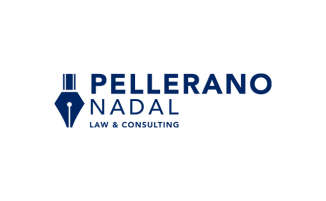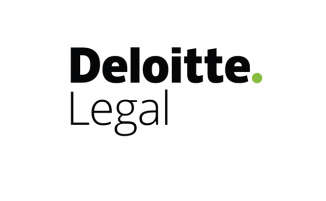In 2023 Bulgaria adopted key legislation amendments that are expected to lead to a boom in green energy investments in the following years. The measures are taken in response to the decline of renewable energy sources’ share in the country’s end consumption for the last two years. The 2022 share of renewable energy sources in the end consumption of electricity in Bulgaria was 19.1% remaining far from the 2030 goal of 27%. Continue reading “Sponsored thought leadership: Bulgaria expects record energy investments in 2024-25”
Sponsored Q&A: Oppenheim
1. How does the Hungarian regulatory framework govern renewable energy projects, and what are the latest amendments or proposals that could impact such projects?
Renewable energy projects are not regulated separately, the respective rules are embedded in the regulation of the given sector. For example, solar and wind projects have their rules within the frame of the electricity regulation, geothermal investors can look up the relevant provisions in the mining law. Note that investors will face turbulent legislative changes in the Hungarian energy sector, especially in respect of renewables. Therefore, renewable investors should pay meticulous attention to the actual legislative framework when considering an investment in Hungary.
Sponsored Q&A: Osborne Clarke
1. Can you describe the current legal framework governing renewable energy in Germany and any significant regulatory developments that have occurred in the last year?
In a nutshell, the legal framework for renewable energy in Germany consists of a priority grid connection claim and support via the Erneuerbare-Energien-Gesetz (EEG) feed-in tariff for smaller installations and the market premium for larger installations. The market premium is paid by the grid operator and compensates for the difference between a bid awarded in a tender and the market prices.
Sponsored Q&A: Pellerano Nadal
1. What are the primary laws and regulations governing the energy sector in the Dominican Republic?
The General Electricity Law No. 125-01, dated 26 July 2001, as amended (the Electricity Law), regulates all stages of production, transmission, distribution and commercialisation of electricity, as well as the functions of the competent government agencies that oversee the energy sector. These agencies are essentially the National Energy Commission (CNE), responsible for national energy policy development and the Superintendence of Electricity (SIE), as the regulatory/supervisory body. In 2007, the Renewable Energy Incentives Law No. 57-07 (Law 57-07) was enacted to provide a number of incentives to businesses developing renewable energy technologies. Continue reading “Sponsored Q&A: Pellerano Nadal”
Sponsored Q&A: Cyril Amarchand Mangaldas
1. How does estate planning differ in India compared to other countries, especially in light of unique family structures and property laws?
Indian inheritance related laws are diverse and vary on a number of factors, such as the nature of the assets (movable or immovable), their location, and the personal law of an individual, which in turn is largely based on their religion. For instance, probate of a will is required only for individuals following a particular religion and if the immovable property is situated in a presidency town in India. Hindu succession law is also vastly different from Muslim or Christian succession law. Continue reading “Sponsored Q&A: Cyril Amarchand Mangaldas”
Private Client Yearbook 2024: Foreword – Hunters Law
What does digital transformation mean for private client services?
Cryptocurrencies promised a revolution. Their decentralised infrastructure was thought to be the future of finance – and by late 2021, they were worth $3trn. Then those values came crashing down. Now the king of crypto, Sam Bankman-Fried, has been found guilty of one of the biggest financial frauds of all time. Continue reading “Private Client Yearbook 2024: Foreword – Hunters Law”
Lead partner: 2024 will be a year of change in the UK. The question is, how much?
Do you have a crystal ball? If you do, then perhaps you can share the outcome of the UK election in 2024. Which election pledges are going to have most impact on private wealth professionals and their clients? Or perhaps you’re reading this in May or November, know who has won and are busy planning around any changes.
At the time of going to press, when it comes to wealth and taxation, there are known knowns, known unknowns, and unknown unknowns, to paraphrase former US Defence Secretary Donald Rumsfeld.
Continue reading “Lead partner: 2024 will be a year of change in the UK. The question is, how much?”
Sponsored thought leadership: Benefits of the Austrian Private Foundation
The Austrian Private Foundation (PF) is a viable option to protect and preserve assets over generations, as well as to prevent the distribution of assets in the event of succession.
Establishing an Austrian PF enables the founder to align his/her assets with the founder’s wishes but separating the assets from the founder’s future fate. Due to the relative freedom of organisation under the Austrian Private Foundation Act (APFA), the Austrian PF and its structure can be adapted to the individual needs of the founder.
Continue reading “Sponsored thought leadership: Benefits of the Austrian Private Foundation”
Strategies for safeguarding client confidentiality and compliance
Everyone is aware that data breaches and cyber attacks are on the rise globally. It affects organisations across various industries and for legal firms especially it is imperative that security is a top priority. Lawyers need to ensure their documentation is secure to uphold the principles of client confidentiality and attorney-client privilege, this is fundamental to the legal profession. By securing documentation, legal professionals protect against unauthorised access, data breaches, and potential disclosure of confidential information to third parties. Compliance with legal and industry-specific regulations is crucial,and secure documentation ensures adherence to these standards, mitigating the risk of legal and ethical consequences. Additionally, securing documentation reflects the professional responsibility of legal practitioners to safeguard the interests of their clients and maintain the highest ethical standards in the practice of law.
Law firms can enhance their security measures by using cloud-based digital dictation solutions as well as implementing a combination of technical safeguards, best practices, and employee training. Here are key steps law firms can take to protect themselves when utilising cloud-based digital dictation.
Continue reading “Strategies for safeguarding client confidentiality and compliance”
Tech outlook in Cyprus in 2024
In recent years, Cyprus has cultivated a thriving tech eco-system, positioning itself as a strong innovator, with a commitment to driving competitiveness and strategic service delivery. The country’s ICT sector is said to have contributed €3bn+ to the Cypriot economy in 2022, constituting 13% of the country’s GDP—a substantial leap from 7% in 2019 and 8.5% in 2020. Notably, €1bn is reportedly attributed to the influx of international firms and specialised human talent to Cyprus, a trend accelerated by the conflict in Ukraine.
In 2023, we observed Cyprus make remarkable progress in the technology sector. Fuelling this growth was the emergence of tech start-ups and digital enterprises, supported by government initiatives and organisations like TechIsland, Cyprus’ largest tech association, designed to attract high-calibre tech corporations worldwide. With over 270 member companies, TechIsland aims to enhance the tech industry’s operating environment, unite diverse stakeholders, and promote sustainable growth, contributing significantly to the country’s economic prosperity through tech.
Continue reading “Tech outlook in Cyprus in 2024”















